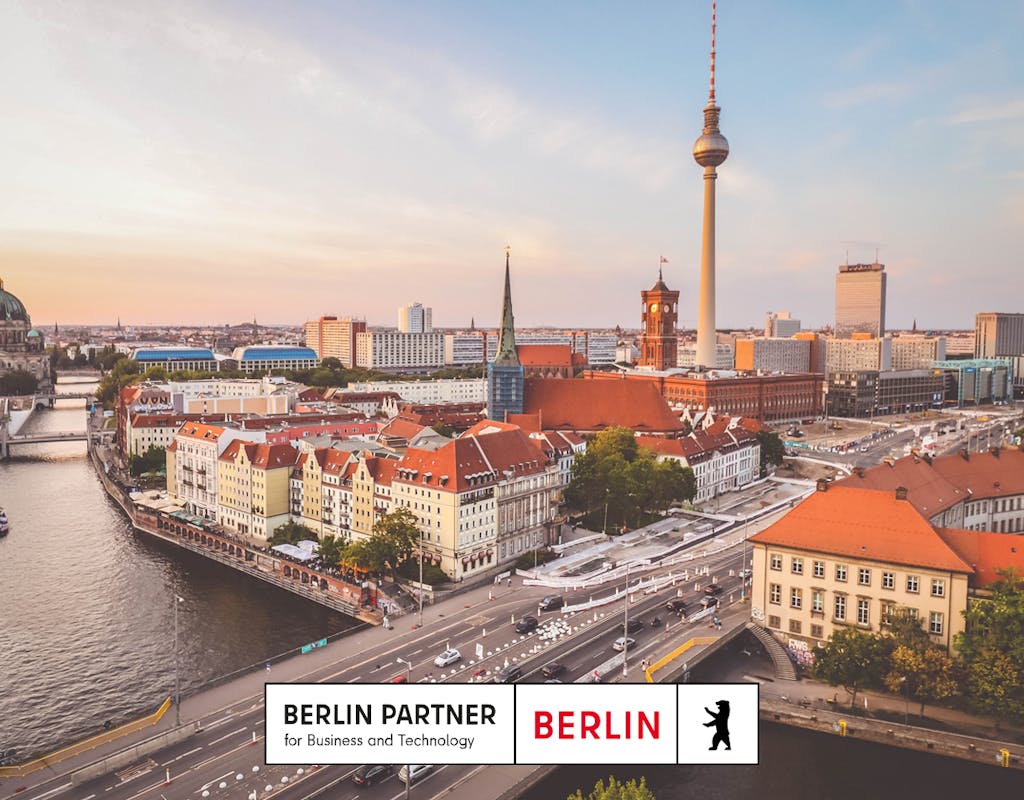Burkhard Volbracht is Head of Unit Talent International at Berlin Partner and has been promoting Berlin's job market since 1997. After coming to Berlin as a student in 1994, he started his first job in the business sector 3 years later. At that time, attracting skilled workers and dealing with the problems caused by the restructuring of the industry were of great relevance. At Berlin Partner, Burkhard found an institution that was involved in this process from the start and is still a part of it today.
Berlin Partner for Business and Technology is a public partnership company that originated in the 1980s and went through several mergers until five years ago when it became the Berlin Partner for Business and Technology that is widely known as today. It provides business and technology support for companies, investors, and scientific institutions in Berlin. Berlin Partner is backed by the Berlin Senate and more than 230 companies and scientific institutions that are committed to their city and support the work of the company.
Berlin Partner was founded with the aim of representing the economic interests of Berlin. Every large city has such an institution and the different cities compete to achieve their economic goals. A popular example of this is Tesla's Gigafactory, which has found a home in the capital region of Berlin-Brandenburg.
Burkhard Volbracht has decided to use his job at Berlin Partner to help the city compete with other major cities and help shape the future of Berlin. To get an insight into the changes in the job market, but also in the city of Berlin, we asked Burkhard Volbracht questions about the interests of Berlin's companies, what makes Berlin an attractive business location, and Berlin Partner's current survey.
Want to support Berlin Partner in making Berlin even more attractive? Help them by answering their survey on this topic.
Berlin's population has continued to grow over the last few years. What makes this city so attractive to people?
For one thing, the capital is attractive because Berlin's creative scene attracts young people to study, do internships or start a career. Additionally, low-cost housing has had a major impact on the immigration of many people and cultures for a long time. As a result, Berlin has become an international cosmopolitan city, which has also contributed to the growth of English speakers moving to the capital. Political stability and good education have also contributed to many families (mostly from Eastern Europe) settling in Berlin.
What makes Berlin an attractive business location?
The longstanding below-average salaries, ensured low business costs and drew many companies, especially in service, to move to Berlin. In addition, Berlin is known for its internationality, which is reflected in multilingual services and high language competence.
Over the last few years, the largest and most active start-up scene in Germany has emerged in Berlin, of which both Berlin Partner and Burkhard Volbracht are personally very proud.
How can we continue to build on the advantages that Berlin currently offers while preserving the city's culture?
We should maintain a welcoming culture and work to improve communication between the authorities and the people. In doing so, we should offer more opportunities to skilled workers upon their arrival. The housing market is also an important variable, as rising prices are increasingly displacing residents - especially from trendy neighborhoods such as Mitte/Prenzlauer Berg. Remedial action would be to advertise and improve the attractiveness of the outer districts. Tensions can thus be smoothed out and the synthesis between locals and newcomers improved. In London and Paris, for example, it can be observed that more and more people can no longer afford to live in the center. But this cultural asset needs to be preserved in Berlin for the long term.
How has Berlin changed as a result of its growing population?
Berlin has become even more international. We are seeing that there is no region that is not represented in Berlin. As a result, Berlin, which for years was characterized by small businesses, is growing and becoming more attractive to larger companies such as Zalando. As a result, business networks are becoming more diverse. Wages have slightly adjusted to rents, which have risen enormously due to the increasing number of inhabitants. The balance between these two variables must be maintained in the future. Despite this, living in the German capital is still affordable compared to London and Paris.
What does Berlin plan to do in the future to make the capital even more attractive for people and companies?
Another possibility is to create more living space to ease the rental space situation. In addition, the further dovetailing of business and science also plays a major role so that innovations can be driven forward. Also, the support offered for start-ups should be expanded.
Why are immigrants/companies an important factor for Berlin and how have they helped shape Berlin's culture and economy?
The influx in recent years has created nearly 40,000 jobs that have been filled by people from outside the city. The diversity of talent also plays out as diversity in the business landscape, resulting in many start-ups. As a result, aspects such as diversity and experiential knowledge from international sources play important roles. Through these aspects, Berlin is perceived as a city of change and this change is driven by influences from outside. The cultural scene also thrives on the influx of people and due to the constantly growing diversity of people, more and more popular guests come to Berlin, such as the mayors of London and New York. They visit the capital, for example, to visit their children studying in Berlin. This presents the opportunity to get to know the cultural scene/club scene of Berlin. A good example is also the Berlin Philharmonic Hall, which attracts many people interested in music due to its worldwide popularity.
What is the current Berlin Partner survey about and why is it important for you?
We have noticed that many people have come to Berlin and as a result, many jobs have been created and filled. The goal is to understand the main motivations for professionals coming to Berlin to work. This data can be used not only to better market Berlin to the competition but also to keep the capital competitive with other major cities such as Lisbon, Dublin, London, and Paris.
What difference can people make by participating in the survey?
We can learn from the experiences of people who have moved to Berlin, and we also want to offer our help to people who are currently stuck in bureaucratic processes themselves.
What happens with the answers to the survey?
Firstly, the answers are evaluated, which means we analyze what is going well and what is going less well in the capital. We then approach the authorities to communicate the problems identified and to work on seeking improvements. We are able to gain valuable insights to the demands and needs of skilled workers. In the course of this, we actively approach companies looking for personnel to help them approach applicants or to reveal the expectations of skilled workers. We can also find out what skills workers bring with them and what they need so that we can analyze the demand in the next step. Through this process, the potential for setting up courses or coding schools becomes clear.









